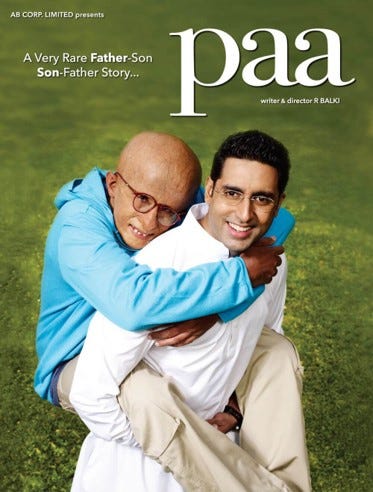The State of Modern Fatherhood: A Global Reckoning? BY SHEMI ESQUIRE
Are the Many Children Who Cannot See or Be With Their Fathers Caught in a Manufactured or Real Crisis?
The State of Fatherhood: A Global Reckoning?
Are the Many Children Who Cannot See or Be With Their Fathers Caught in a Manufactured or Real Crisis?
By Shemi Esquire
On a serene summer morning, I found myself driving under clear skies, later gazing out across a vast ocean from a quiet vantage point. As I casually scrolled through my messages, a few words struck me: "Happy Father's Day."
For a moment, I had forgotten the date. Not out of carelessness, but because I was preoccupied by what time to make breakfast, how to plan the day, and how best to support and mentor the young man in my care. Parenthood is immersive.
It is minute by minute. Beautiful. Rewarding. But can be all-consuming too.
Fatherhood in a world that has changed, is the very essence of unconditional love without loudness, care without social media updates, remains timeless.
It also reminded me that millions of fathers across all continents were not with their children that day.
Some were absent by force. Others by social design. And in many cases, by a subtle, complex, often overwhelming web of systemic, legal, and economic structures that have disproportionately undermined fatherhood across generations.
Crisis in Numbers
The data paints a stark picture of contemporary fatherhood. In the United States alone, approximately 20.2% (about 7 million) of fathers are "absent" from all of their minor children, while nearly 25% of American youth are growing up without a father in the home. This represents one of the most significant demographic shifts in modern family structure.
The consequences are far-reaching and measurable. Young men who did not grow up with their biological father are almost twice as likely to be idle compared to their male peers from father-present families, even after controlling for family income, race, maternal education, and other variables. The educational impact is equally concerning, with fatherless children showing lower rates of college attendance and higher dropout rates.
Criminal justice statistics reveal another troubling dimension. Father absence affects delinquency differently by gender, being more linked to criminality in young men than women, with the quality of father-child relationships directly influencing delinquency levels. Ninety percent of runaway children have an absent father, while fatherless children face significantly higher risks of physical, emotional, and sexual abuse.
Global Patterns
Fatherhood, like motherhood, is foundational. From time immemorial, parenting has been a collaborative, lifelong exercise unless there are overwhelming and evidenced reasons against it, in the best interests of the child. Fathers cannot and should not be relegated to the role of mere conception aides or child support-mandated providers. The contemporary framing of fathers as peripheral to family life has, in many contexts, led to fractured homes, strained relationships, and generational trauma.
Recent UK statistics reveal the mental health crisis accompanying this shift. Suspected suicide rates in males (14.4 per 100,000) remain nearly three times higher than females (5.0 per 100,000), with men accounting for 79% of all suicides in 2022. Globally, men account for 75-80% of suicides, making it a leading cause of death for men under 50.
The Health Secretary acknowledged in 2025 the "silent pandemic" of male mental health and its correlation with isolation, economic stress, and family breakdowns. Similar patterns are evident across the European Union, where the male suicide rate significantly exceeds that of females. In the Global South, where data may be less consistently collected, comparable patterns are emerging as urbanization and economic marginalization drive familial dislocation.
Educational Impact
In many Western societies, including the UK and the US, the school-to-prison pipeline has long been documented. Young boys, especially from minority backgrounds, face school exclusions at disproportionate rates. This marginalization is compounded by under resourced special education systems, underdiagnosed neurodivergence, and criminalization of behavioral responses often rooted in trauma.
The substance abuse crisis among fatherless children presents another alarming trend. Fatherless children are more likely to smoke, drink, and abuse drugs in both childhood and adulthood, creating cycles of dysfunction that perpetuate across generations.
At the heart of this is a simple truth: children thrive best with present, loving, and active caregivers. When children are denied access to their fathers due to incarceration, poverty, administrative bias, or social services overreach it is not just the father who suffers. The child loses out. So does society.
Reports by UNESCO and UNICEF confirm the protective role that fathers play in education, emotional well-being, and life outcomes for children, particularly boys. The absence of fathers correlates with increased risks of delinquency, lower educational attainment, and reduced economic opportunity.
Systemic Issues
This raises a critical legal and sociopolitical question: are we facing a manufactured crisis or a real one? Advocacy groups like Fathers Matter UK and Families Need Fathers argue that biased systems disproportionately remove fathers from homes, relying too heavily on outdated gender roles. Some social workers, though well-intentioned, operate within systems that produce results inconsistent with evidence-based, child-centered outcomes.
However, recent data suggests some positive trends. The proportion of children living with resident dads is at a 34-year high in the United States, indicating that awareness and policy changes may be having an impact. Despite this improvement, the number of children living with their father only more than quadrupled from 0.8 million (1%) to 3.3 million (4.5%) between 1968 and 2020, though this arrangement remains much less common than living with a mother only.
Economic disparities add further strain. In working-class communities across the Global North, particularly among racial minorities, economic insecurity makes family cohesion harder to maintain. The global divide is even starker. In parts of sub-Saharan Africa, Southeast Asia, and Latin America, economic migration often forces fathers to live far from their children for months or years at a time. The familial toll is profound, though less visible.
Historical Context
History tells a story of sacrifice and distance. Martin Luther King Jr. and Nelson Mandela were fathers whose personal family lives were shaped, sometimes strained, by their wider national missions. As Nelson Mandela once reflected, "To be the father of a nation is a great honor, but to be the father of one's children is a greater joy."
Barack Obama in Dreams from My Father navigates the psychological void left by an absent father, while acknowledging the broader symbolism of fatherhood in public life. In that spirit, I recall the haunting words of the South African reggae artist Lucky Dube: "Daddy, wherever you are, remember me. I love you. You went away many years ago."
It is in these moments across generations, across songs, across courtroom cases and human struggles that we see the universality of the need for connection.
Solutions
Many programs have sought to bridge the gap. Some have succeeded. Others failed. But there is a growing consensus: we must do better. We must see fatherhood not just as a cultural role, but as a legally protected relationship. International frameworks must recognize the reciprocal right of access—not just fathers to children, but children to fathers.
UN Human Rights reports have emphasized the child's right to family life as enshrined in the Convention on the Rights of the Child. The European Court of Human Rights has repeatedly held that arbitrary or bureaucratic barriers to parental access violate human dignity and family integrity.
Successful interventions have emerged from various contexts. Economic support programs that provide job training and economic stability to fathers have shown measurable impacts on family reunification rates. Family court reform initiatives implementing shared parenting presumptions and father inclusive mediation have reported improved outcomes for children.
Mental health integration programs addressing male mental health specifically within the context of fatherhood have reduced suicide rates and improved family stability. Community based mentorship organizations connecting absent fathers with community support networks have achieved higher rates of successful reintegration.
Path Forward
When nuclear relationships break, communities break. When fathers are unjustly separated from their children, societies suffer. The statistical evidence is overwhelming: father absence correlates with measurable negative outcomes across multiple domains of child development and social functioning.
We must face the data, acknowledge the damage, and act. Many social workers are doing heroic work—but even they are operating in a system that has developed significant structural problems. A society that ignores fathers is a society blind to the fullness of childhood.
The path forward requires nuanced approaches that protect children while preserving family bonds wherever possible. This means evidence based decision making that moves beyond assumptions to data driven assessments of family situations. It requires father inclusive services that actively engage fathers rather than treating them as peripheral. Economic justice must address the systemic economic factors that destabilize families. Legal reform should ensure family courts operate with presumptions that prioritize children's relationships with both parents. Mental health support must provide targeted interventions for fathers experiencing isolation and crisis.
Father-Inclusive Services: Designing social services that actively engage fathers rather than treating them as peripheral
Economic Justice:
Addressing the systemic economic factors that destabilize families
Legal Reform
Ensuring family courts operate with presumptions that prioritize children's relationships with both parents
Mental Health Support
Providing targeted interventions for fathers experiencing isolation and crisis
Parenthood ideally takes twoor a village, as some put it. And when it cannot, let it be due to well-evidenced reasons, not institutional laziness, legal inertia, or social dogma.
Let us restore the balance. Let us recognize that the greatest gift to fathers and to children is the removal of artificial barriers and the restoration of their millennia-old rightful place in the family structure.
The data demands action.
The children deserve better. The time for change is now.
References
1. NHS Digital (2024), Male Suicide and Mental Health Report, UK.
2. UK Department of Health, Hansard Parliamentary Report on Mental Health Strategy, March 2025.
3. Eurostat (2024), Gender Disparities in Suicide Rates in the EU.
4. WHO Africa (2023), Mental Health in Developing Countries: The Forgotten Crisis.
5. UK Government Equality Office (2022), School Exclusions by Ethnicity and Gender.
6. Children's Commissioner for England (2023), Special Educational Needs and Youth Justice.
7. UNESCO (2023), The Role of Fathers in Education and Development.
8. UNICEF (2022), Global Child Welfare and the Importance of Fatherhood.
9. Fathers Matter UK, Advocacy Statement 2024.
10. United Nations Convention on the Rights of the Child, Article 9.
11. ECtHR, Elsholz v. Germany, Application No. 25735/94.
12. US Census Bureau (2019), The Two Extremes of Fatherhood.
13. National Fatherhood Initiative (2024), Father Absence Statistics.
14. UK Office for National Statistics (2024), Near-Real-Time Suspected Suicide Surveillance.
15. Institute for Family Studies (2024), Life Without Father: Educational and Employment Outcomes.
Published by The Legal Chronicle, June 2025.








